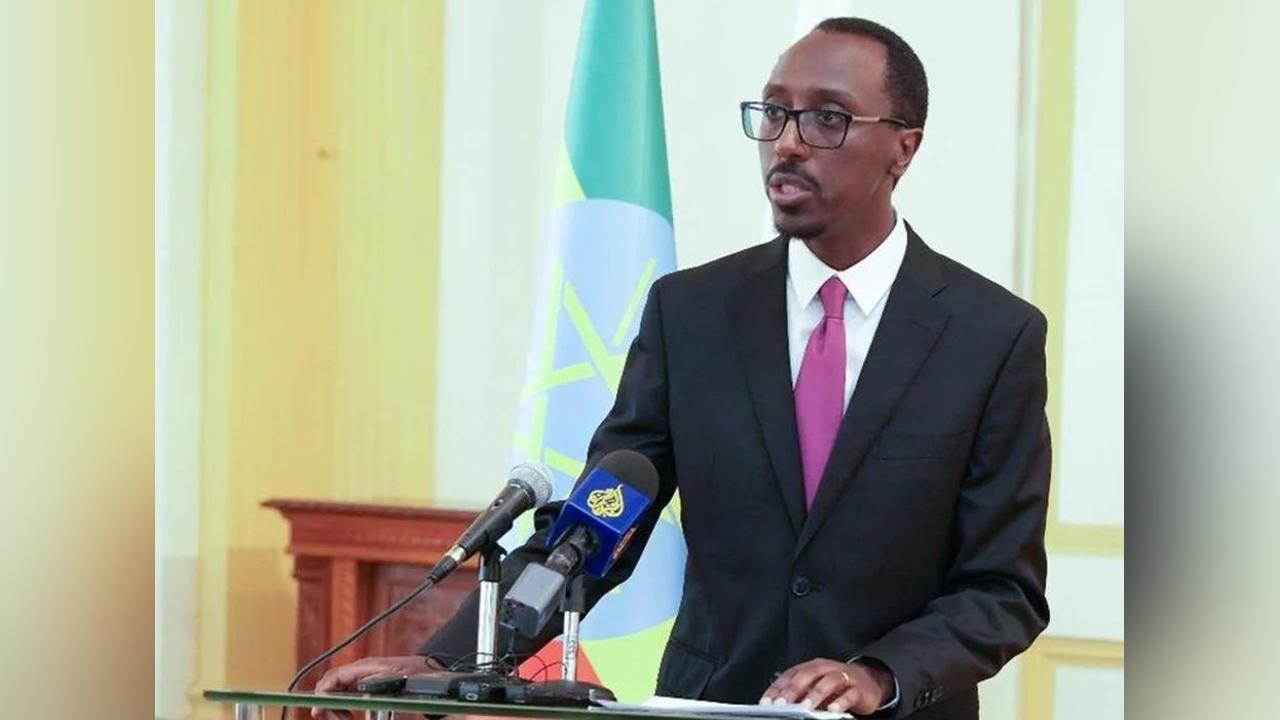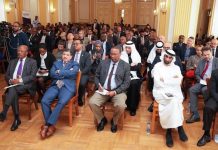Africa-Press – Ethiopia. Home/News/Ethiopia accuses Eritrea of territorial violations, armed-group support, reaffirms Assab as strategic priority, warns military restraint is limited NewsPolitics
News: Ethiopia accuses Eritrea of territorial violations, armed-group support, reaffirms Assab as strategic priority, warns military restraint is limited
November 14, 2025 2 minutes read Addis Abeba — Ethiopia has accused Eritrea of supporting armed groups operating inside its territory and violating its sovereignty, while reaffirming that secure access to the Assab Port remains a strategic national priority.
Ethiopia also warned that its military restraint in the face of what it described as “serious provocations” is “not indefinite or unconditional.”
The remarks were delivered on 13 November 2025 by Ethiopia’s Foreign Minister, Gedion Timothewos (PhD), at the Foreign Policy Forum co-organized by Horn Review and Addis Ababa University, where he provided a detailed assessment of the historical and contemporary roots of Ethio-Eritrean tensions and outlined Ethiopia’s approach to resolving them.
The minister said Eritrean troops are currently in control of “several local administration units in northern Ethiopia,” stressing that these areas fall “squarely within Ethiopian sovereign territory.” He added that Eritrea is “interfering in Ethiopia’s internal affairs by providing substantial material support to groups that have raised arms against the Government.”
“These facts provide ample ground for the legitimate exercise of Ethiopia’s right to self-defense,” Gedion said, emphasizing that Ethiopia has “consciously chosen” restraint to avoid a devastating conflict in an already fragile region. “This restraint should not and cannot be taken as being indefinite and unconditional,” he cautioned.
Tracing the long, conflict-laden relationship between the two countries from the mid-20th century to the present, Gedion argued that recurring tensions extend beyond border disputes or Ethiopia’s maritime aspirations. He cited five underlying causes, including Eritrea’s attempts to influence Ethiopian domestic affairs, the instrumentalization of Eritrea by external forces hostile to Ethiopia, and a security doctrine within Eritrea that equates its stability with Ethiopian instability.
He further described the Eritrean state as “anomalous,” asserting that its political and economic structures are almost entirely militarized. This, Gedion said, limits Eritrea’s capacity for normal economic and diplomatic engagement, undermining previous efforts at rapprochement, including the 2018 normalization initiative.
Despite these challenges, Gedion emphasized Ethiopia’s vision of the Horn of Africa as a shared geo-economic and cultural space, where long-term stability depends on regional economic integration. He argued that Ethiopia and Eritrea — “two states that have virtually one people” — are well-positioned to form the nucleus of such an integration model. This, he said, could begin with a free trade area and gradually expand toward deeper harmonization of economic policies, including joint investment in strategic infrastructure, while addressing Ethiopia’s need for “durable and secure” access to the sea, including Assab, in ways mutually beneficial to both countries.
The minister also called on the international community to support de-escalation efforts and encourage Eritrea to end “provocations and violations” and engage in good-faith dialogue. “We should not be captives to our history but masters of our future destiny,” he said, urging both governments — and the next generation — to pursue a path of peace, regional integration, and shared prosperity.
Following the address by Gedion, participants engaged in a moderated Q&A session chaired by Horn Review Executive Director, Blen Mamo.
In response to a question about Assab port, the Minister stressed that Assab Port remains Ethiopia’s foremost priority, not merely for historical or legal rectification, but because the Ethiopian state has invested significantly both before and after Eritrea’s secession. He recalled that Ethiopia lost access to the port 27 years ago when Eritrea declared war in 1998 and emphasized that the country will not allow itself to face similar vulnerability in the future. He also reiterated the Prime Minister’s parliamentary address questioning the legitimacy of the process through which Ethiopia was severed from its inherent access to the sea, while highlighting Ethiopia’s strategic intent to diversify port access through transit arrangements with other coastal states in the region. AS
For More News And Analysis About Ethiopia Follow Africa-Press






